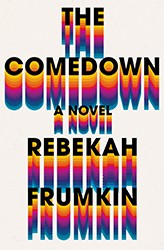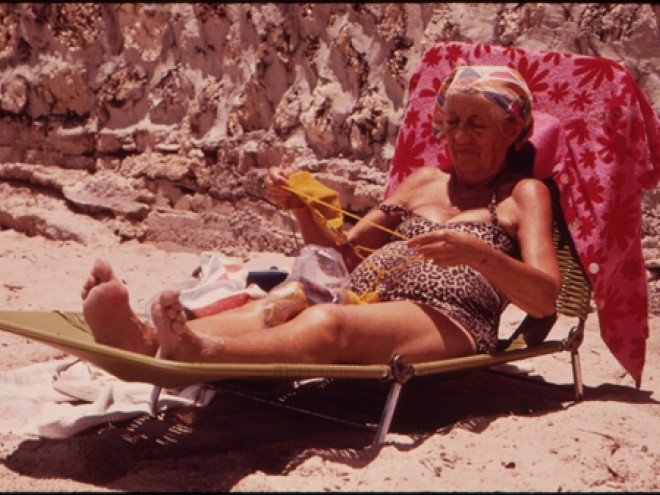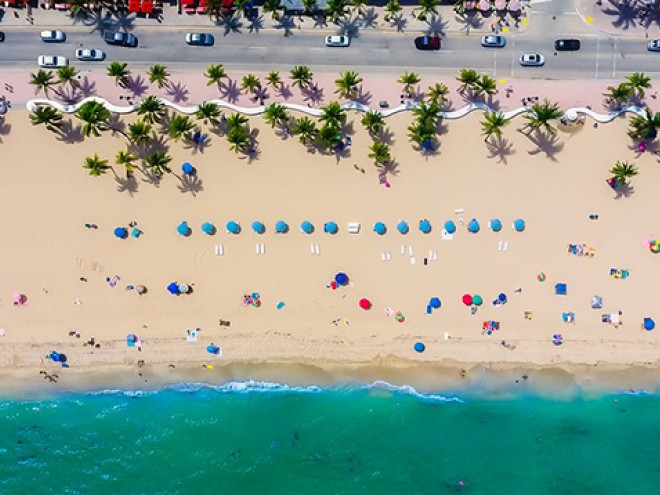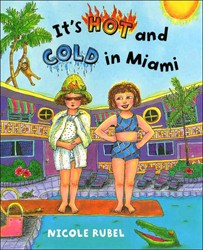
Rebekah Frumkin is writing here as part of Jewish Book Council’s Visiting Scribe series.
Every good Jew knows there were two diasporas: the first out of Israel and the second out of New York. I was born just outside of Chicago, the child of an Ashkenazi father from New York and a gentile mother from Illinois. I didn’t consider myself a member of the Jewish community because by the halakhah I wasn’t. I didn’t go to Hebrew school, didn’t become a bat mitzvah. When my father tried to share his background with me by dressing me up in a kippah and tallit and taking me to an orthodox shul, the rabbi declared, “Women can’t wear those!” and ordered us out the front door.
“Women can’t wear those,” my father intoned bitterly. Then he looked at me, eyes heavy with sadness. “You’re just a kid.”
I wasn’t Jewish except for my Jewish name, my Jewish-looking hair and face. I had inherited my father’s inability to sleep, my mother’s ability to catastrophize. I was sunny-but-nervous, the disposition of the diaspora. I was Frankenstein’s Jew, an assemblage of parts that somehow added up to a functional whole. I didn’t fit in anywhere: the two Jewish kids at my suburban school had been born into the faith in a way I hadn’t, but the many gentiles didn’t seem to understand that life was a gift in need of constant worry.
Then one summer my father and I drove down to Miami to visit his sisters. I’m not sure what I expected. My aunts smiling on a beach, their tight curls invulnerable to the wind, their cutoffs rolled up above their knees? My aunts building sandcastles while the rest of the world functioned somewhere without them? What did people do in Florida? I understood that the wealthy vacationed there, but who lived there?
The answer: Jews. I remember watching an old man amble across the beach carrying a boombox playing klezmer music. An old woman in cat-eye sunglasses and a swimsuit with a flamingo’s head on the stomach told me I was “darling” and asked my father if he knew what a delightful punim I had. Kids my age ran around with me on the beach and taught me how to curse in Yiddish.
And then there were my aunts. Aunt Hat, the world traveler, showed me a collection of currency from foreign continents. Aunt Laney, the animal rescuer, woke up at the crack of dawn every day to feed stray cats. Aunt Paula, the driver, could pilot a car for fifty hours without blinking. They were mythical to me, women who defied the logic of my suburban world. And Florida was their playground.
Like many good Jews before me, I fell in love with Florida. The sun, the beach, the community! It was like my dad’s native Queens but without all the garbage. Sure, there was garbage in Florida, but it went somewhere mysterious, somewhere out of the way. Somewhere that was not a street corner. And back in my suburban Midwest, everything moved so slowly. People were so isolated from one another: we drove cars to work and school, did what we needed to do, and came back home to eat snacks and watch TV. In Florida, everyone was outside all the time. And everyone was Jewish, and almost everyone was old. I loved old people — I knew I’d make a fine one someday — and old people loved me. Florida was everything I’d wanted from a place. It was everything I’d wanted from Judaism. The faith and the sunshine became inseparable for me.
I remember the last day of our visit. My father and I were at a seafood restaurant with my aunts: he was dousing his lobster in butter and I was making short work of a plate of salmon bits. My aunt Laney sat next to me. In between bites, I watched her eat. The restaurant was wall-less, and the setting sun formed a pink corolla around her head. I was not yet finished with my meal and I already felt sated and tired like a post-brunch retiree.
“When you rescue the cats, are they nice to you?” I asked.
Her head jolted from its corolla. The heat was pleasant, palpable.
“Not always,” she said. “Sometimes they don’t want to be rescued.”
“But it’s good for them to be rescued, right?”
Here she put her fork down and regarded me as though she were seeing me for the first time. “Yes,” she said. “I’d like to think so.”
“Can we do it for people?”
“Rescue them?” she laughed. “People don’t like to be rescued.”
I watched the palm trees arc and sway in the distance. I thought how if there really was a G‑d, Floridians would be the first to know.



